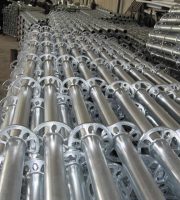What are the general requirements when hearing a case involving the project Department of a construction enterprise? In the trial of the cases involving the project Department of the construction enterprise, when judging whether the behavior implemented by the project manager and others is effective for the construction enterprise, we should follow the idea of “accurately defining the duty behavior, identifying the apparent agent according to law, and severely cracking down on the false litigation”, from whether the behavior has the clear authorization (agency behavior) of the construction enterprise, and whether it belongs to the duty behavior (duty agency behavior) and whether it constitutes apparent agency are examined in turn
.
If it constitutes principal-agent, duty act or apparent agency, the corresponding legal consequences should be borne by the construction enterprise
.
At the same time, in the trial of the case, we should also strengthen the authenticity review of the relevant contract, to prevent some parties from malicious collusion, fictitious debt, damage the legitimate rights and interests of construction enterprises
.
2
.
Under what circumstances can the project manager’s behavior be regarded as duty behavior? According to the provisions of Article 2 and Article 6 of the measures for the management of project manager qualification of construction enterprises, project manager refers to the project manager who is entrusted by the legal representative of the enterprise to be fully responsible for the construction process of the project, and is the representative of the legal representative of the construction enterprise in the project
.
The project manager responsibility system is implemented in the construction of engineering project
.
The project manager is in the central position in the construction of engineering project and has the overall management responsibility for the construction of engineering project
.
It can be seen that the project manager is not only different from the legal representative of the construction enterprise, but also different from the general person in charge of the internal department of the construction enterprise, and has greater management authority for the construction activities of the project
.
We believe that the project manager’s behavior belongs to duty behavior, which should generally meet the three elements of identity, name and authority
.
The identity element refers to the labor relationship between the project manager and the construction enterprise, which is the employee of the construction enterprise; the nominal element refers to the contract signed by the project manager in the name of the construction enterprise or the project department; the authority element refers to the behavior of the project manager within the scope of the authorization of the construction enterprise, such as determining or changing the construction content and construction management with the construction unit Time limit, construction quality, project price, liability for breach of contract, recruitment of necessary office staff, purchase or lease of necessary office appliances, raw materials, machinery and equipment, etc
.
If the behavior of the project manager meets the three requirements, it can be regarded as duty behavior, and the construction enterprise shall bear the corresponding contract responsibility
.
3
.
How to identify the apparent agency behavior when hearing the case involving the project Department of the construction enterprise? When determining whether the behavior of the actor (project manager, actual constructor or other personnel of the project department, etc.) constitutes apparent agency, it is necessary to review whether the act of unauthorized agency objectively has the appearance of agency power and whether the relative person is in the dominant position in accordance with the relevant provisions of the guiding opinions of the Supreme People’s Court on Several Issues concerning the trial of civil and commercial contract disputes under the current situation It is believed that the actor has the right of agency
.
When determining whether the actor has the representation of agency power, we should combine the actor’s identity, authority, behavior mode, trading practices, etc
.
Under one of the following circumstances, it can be recognized that the actor has the appearance of agency power: (1) the project manager is the actual constructor or is actually responsible for the actual constructor, and signs the contract in the name of the construction enterprise or the project department within the scope of authority of the project department; (2) the actor holds the blank introduction letter, power of attorney and contract of the construction enterprise or the authority is unknown (3) when the actor signs the contract within the scope of authority of the project department, he has stamped the seal of the project department or the special seal actually used as the seal of the project department; (4) although he has not signed a written contract with a third party, the construction enterprise knows or should know the civil act and has not made any objection; or he is engaged in the civil action The action belongs to the scope of authority of the project department, and the project department knows or should know but does not object
.
When judging whether the counterpart is in good faith and without fault, we should make a comprehensive judgment based on various factors in the process of contract conclusion and performance
.
In case of one of the following situations, it is generally not recognized that the relative party is in good faith and without fault: (1) the contract signed obviously damages the interests of the construction enterprise; (2) the relative party still signs the contract with the actor knowing that the relationship between the actor and the construction enterprise is affiliation, illegal subcontracting or illegal subcontracting; (3) the goods, machinery and equipment and labor services under the contract are not actually transferred to the construction enterprise (4) the amount of the transaction is obviously not commensurate with the actual demand and scale
.
4
.
Who should bear the burden of proof of apparent agency? Article 91 (1) of the interpretation of the Supreme People’s Court on the application of the Civil Procedure Law of the people’s Republic of China stipulates that “the parties who claim the existence of a legal relationship shall bear the burden of proof for the basic facts of the legal relationship”
.
Therefore, the opposite party who advocates the establishment of apparent agency should bear the burden of proof on the appearance of whether the agency behavior objectively has the right of agency and whether it is in good faith and has no lost ground to believe that the actor has the right of agency; while the construction enterprise can provide counter evidence on the appearance that the actor does not have the right of agency and whether the opposite party is not in good faith or has fault
.
If the people’s court fails to form new evidence after synthesizing the evidence of the whole case and the court trial, the opposite party shall bear the adverse consequences
.
5
.
Is the legal consequence of the contract with the special seals of the project department, such as the special technical seal, the special financial seal, the special drawing review seal, borne by the construction enterprise? The special seals of project department, such as technical seal, financial seal and drawing review seal, have defined the use scope of the seals
.
Generally speaking, the actor can not be regarded as authorized to sign a contract, so the construction enterprise should not bear the contract responsibility
.
However, if the contract signed by the project department with the above seal has been recognized by the construction enterprise, it can still be recognized as having the right to act as an agent
.
The following factors can be used as reference to judge whether the construction enterprise is approved or not: (1) whether the construction enterprise directly pays the counterpart or participates in the performance of the contract in other ways; (2) whether the counterpart issues the invoice to the construction enterprise and whether the construction enterprise actually enters the account, etc
.
6
.
The seal on the contract is forged or privately engraved by the project manager, the actual constructor or others
.
Does the signed contract have legal effect on the construction enterprise? In general, the seal forged or privately engraved by the project manager, the actual constructor or others on the contract does not represent the real intention of the construction enterprise, and does not have legal effect on the construction enterprise
.
However, if it can be concluded that the actor’s behavior constitutes the right agent behavior or apparent agent behavior based on other evidence of the whole case, the construction enterprise should still bear the corresponding contract responsibility
.
7
.
If the raw materials, machinery and equipment purchased or leased by the actor have been used in the construction project, how to deal with them? In the name of the construction enterprise or project department, when the actor purchases or rents the necessary raw materials, machinery and equipment from a third party, he does not sign a written contract, or the written contract is not stamped with the seal of the construction enterprise or project department, but the raw materials, machinery and equipment have actually been used in the construction project, and the third party does not know or should not know that the actor has no agency authority The construction enterprise shall bear the corresponding contract responsibility.
.

